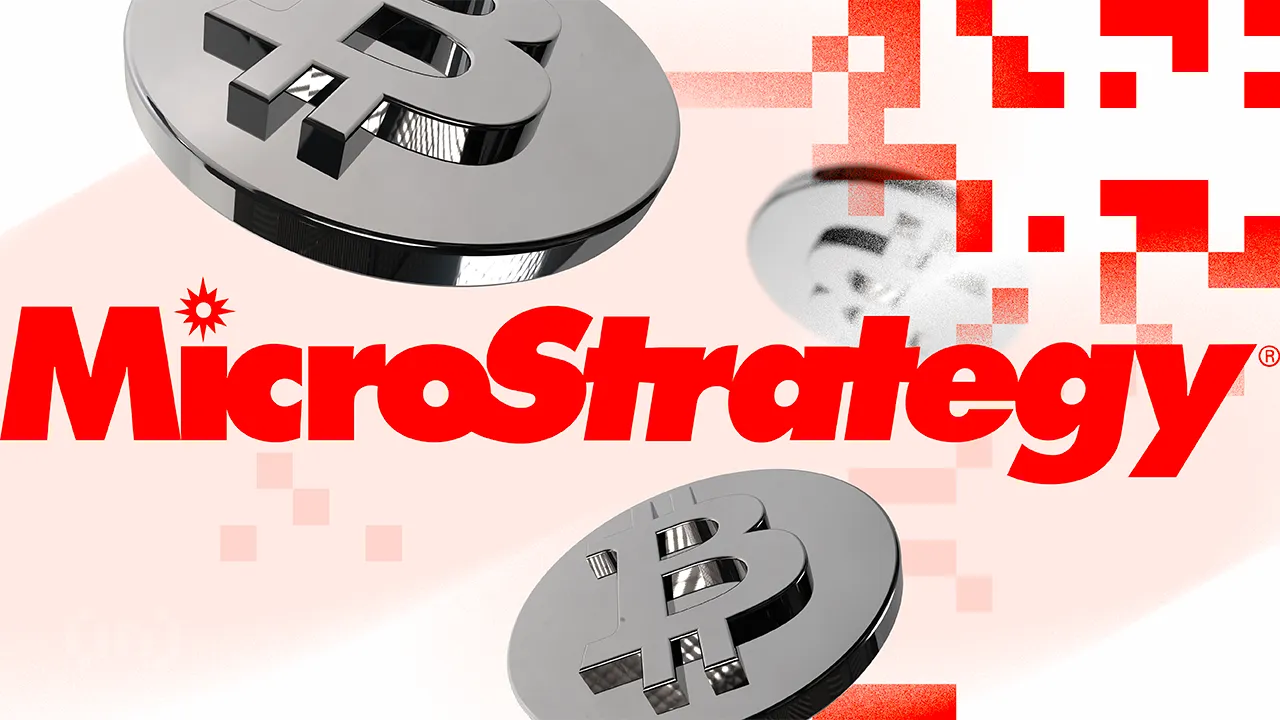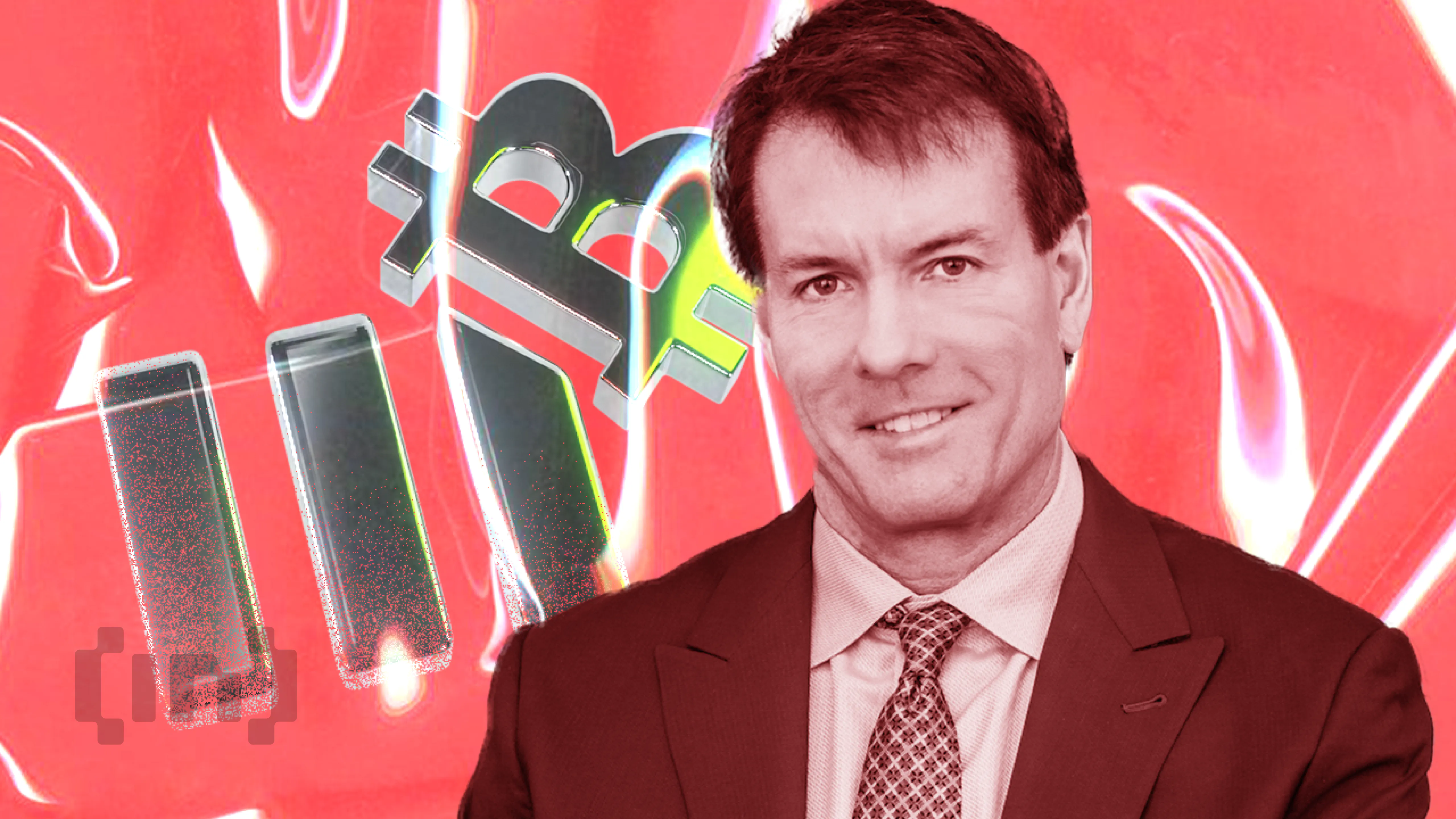Bitcoin
South Korea’s Pension Fund Buys $34M in MicroStrategy
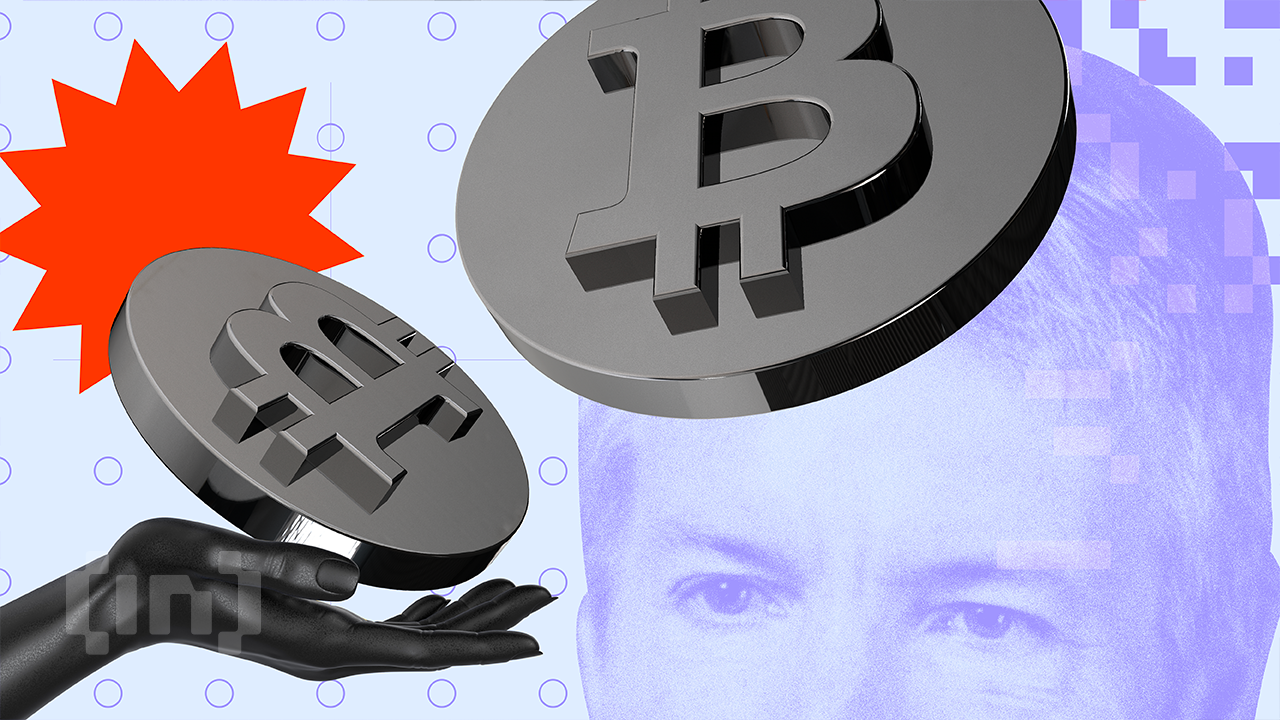
South Korea’s National Pension Service (NPS) recently purchased $34 million worth of MicroStrategy shares, highlighting increased institutional confidence in Bitcoin (BTC) via strategic investments.
MicroStrategy’s heavy Bitcoin focus continues to boost confidence in the company’s long-term prospects and the value of its crypto holdings.
South Korea’s NPS Buys MicroStrategy Shares
An official filing with the US Securities and Exchange Commission (SEC) confirmed the development. Notably, South Korea’s NPS, the second-largest public pension fund in the world, is backing Bitcoin through its MicroStrategy investment. This move underscores the increasing confidence large institutions have in Bitcoin by gaining indirect exposure via MicroStrategy.
MicroStrategy’s stock (MSTR) has effectively become a proxy for Bitcoin due to its aggressive BTC investment strategy. This unintended perception draws investors seeking leveraged exposure to Bitcoin without directly holding the cryptocurrency.
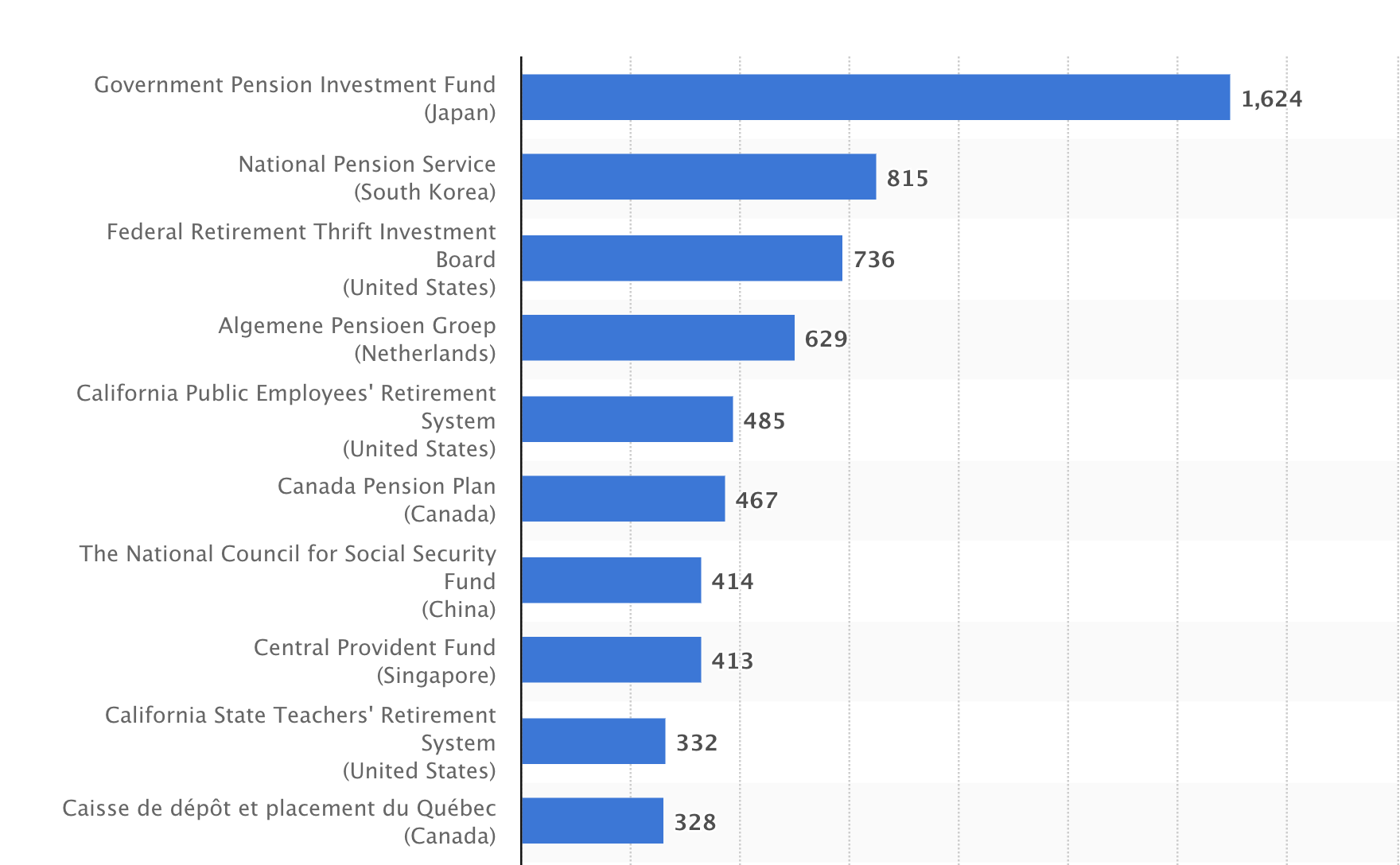
While South Korea’s National Pension Fund gains indirect Bitcoin exposure through proxies, others are capitalizing on the recently approved spot Bitcoin ETFs. Notable examples include New England’s Retirement Planning Company, which invested $249,429 in Grayscale’s Bitcoin Trust (GBTC), acquiring 4,685 shares, as disclosed in its latest FORM 13F filing with the SEC.
Additionally, the State of Wisconsin purchased $99 million worth of BlackRock’s Bitcoin ETFs, iShares Bitcoin Trust (IBIT), while the State of Michigan Retirement System invested $66 million in the ARK 21Shares ARKB spot Bitcoin ETF. Jersey City Mayor Steven Fulop also announced similar investment plans.
Beyond pension funds, Wall Street giants like Morgan Stanley, Goldman Sachs, and DRW Capital have disclosed positions in Bitcoin ETFs. These developments signal growing institutional confidence in Bitcoin and its increasing integration into mainstream finance.
Read more: How To Trade a Bitcoin ETF: A Step-by-Step Approach
This growing allure of Bitcoin among traditional finance (TradFi) players was instigated by the approval and launch of spot Bitcoin ETFs in January, which delivered BTC to Wall Street. South Korea Pension Fund’s move, therefore, aligns with a broader trend where TradFi adopts Bitcoin within investment strategies.
MicroStrategy’s Bitcoin Investment Strategy
The Virginia-based firm MicroStrategy has earned a reputation as a leading Bitcoin maximalist, driven by its CEO, Michael Saylor, a well-known BTC advocate and investor.
“Bitcoin is a capital investment you can hold for decades that a corporation, competitor, counterparty, or country can’t take away from you. It will create generational wealth for your family, corporation, or country,” Saylor shared recently.
MicroStrategy’s Bitcoin investment strategy continues to fortify its place in the crypto arena, turning heads with every development. As BeInCrypto reported, the US SEC approved ETF issuer Defiance’s MSTX, bringing forth MicroStrategy’s first-ever leveraged single-stock ETF.
The firm continues expanding its Bitcoin holdings despite market challenges, maintaining its position as the public company with the largest BTC reserve. For example, in Q2 2024, MicroStrategy acquired 12,222 Bitcoin, bringing its total holdings to 226,500 BTC, even after posting a quarterly loss. Earlier this month, the company announced plans to sell up to $2 billion in shares for further Bitcoin investments and other corporate purposes.
Read more: Who Owns the Most Bitcoin in 2024?
Despite its bold Bitcoin stance and strategic moves, MicroStrategy is not immune to market downturns. For instance, its Bitcoin portfolio took a hit in July when the US government announced plans to sell $2 billion worth of seized BTC, leading to a decline in Bitcoin’s value and impacting the firm’s holdings.
Nevertheless, MicroStrategy’s Bitcoin stance and strategic investment acumen do not absolve it from taking blows whenever the market tanks. For instance, its Bitcoin portfolio took a hit in July when the US government announced a $2 billion sell-off from seized BTC holdings. The decline was further fueled by the Federal Reserve’s decision to pause interest rates on July 31 and a weaker-than-expected US jobs report on August 2.
Disclaimer
In adherence to the Trust Project guidelines, BeInCrypto is committed to unbiased, transparent reporting. This news article aims to provide accurate, timely information. However, readers are advised to verify facts independently and consult with a professional before making any decisions based on this content. Please note that our Terms and Conditions, Privacy Policy, and Disclaimers have been updated.
Bitcoin
US Economic Indicators to Watch & Potential Impact on Bitcoin

Several US economic indicators are in the pipeline this week, with potential implications for Bitcoin and crypto.
US macroeconomic data have broadly influenced sentiment in the cryptocurrency market over the past several months. Therefore, it is imperative that traders and investors adjust their portfolios and align their trading strategies to capitalize on key economic events.
US Economic Events This Week
Several factors, including macroeconomic sentiment, monetary policy expectations, and Bitcoin’s growing narrative as a hedge or risk asset, influence Bitcoin’s price dynamics. These make the following indicators particularly relevant this week.

US Leading Economic Indicators
The first US economic indicator that could influence Bitcoin price is March’s leading economic indicator, due today, Monday, April 21.
The Conference Board Leading Economic Index (LEI), last reported for February 2025, declined by 0.3% month-over-month (MoM) after a revised 0.1% increase in December 2024.
This drop, driven by pessimistic consumer expectations and weaker manufacturing orders, continued a trend of negative signals. However, the six-month growth rate is improving, suggesting less severe headwinds than in 2024.
There is a median forecast of a 0.5% decline for the March report, versus a consensus of -0.6%. While these data points to economic slowdown, stabilizing trends and a projected 2.0% GDP growth for 2025 offer some optimism.
However, policy uncertainties, such as Trump’s tariffs, could exacerbate risks. For Bitcoin, declining LEI may dampen risk appetite, pushing investors toward safer assets like bonds and pressuring prices in the short term.
Conversely, Bitcoin’s “digital gold” narrative could gain traction if economic uncertainty fuels distrust in fiat systems. However, this is less likely unless broader trade tensions or policy shocks amplify the effect.
Services PMI
The S&P Global US Services PMI for March 2025 climbed to 54.4 from 51.0 in February, signaling strong expansion in the services sector. This rise, paired with a composite PMI 53.5, reflects resilient consumer demand.
This strength bolsters the US dollar, reducing expectations for Federal Reserve (Fed) rate cuts, which could challenge Bitcoin’s appeal. A stronger dollar and higher yields typically weigh on Bitcoin, as seen in past cycles when real yields rise.
However, rising input costs and tariff concerns temper business confidence. For the April Services PMI, the median forecast is 53.0.
Strong services activity may support broader risk-on sentiment, potentially lifting Bitcoin if equity markets rally, given its occasional correlation with indices like the Nasdaq.
Still, tariff uncertainties could cap any negative pressure, keeping the impact neutral to slightly bearish, as dollar strength overshadows marginal risk-on gains.
Manufacturing PMI
In contrast, the S&P Global US Manufacturing PMI for March 2025 fell to 50.2 from 52.7, hovering near stagnation. Meanwhile, the ISM Manufacturing PMI contracted to 49.0 from 50.3, with new orders, production, and employment declines.
This weakness, consistent with October 2024’s ISM reading 46.5, reflects high interest rates, weak global demand, and tariff-related uncertainty.
Moody’s Analytics and Statista highlight manufacturing’s struggles, warning of broader slowdown risks, especially with trade policy volatility under the Trump administration.
For Bitcoin, weak manufacturing data signals reduced risk appetite, likely exerting downward pressure, particularly given its equity market correlation.
While a sharp manufacturing decline could theoretically spur rate-cut expectations, persistent inflation and tariff-driven cost pressures make this unlikely. The outlook here is bearish, as fears of economic slowdown dominate.
“S&P Global Services/ManufacturingPMI (Wednesday): The pulse of the economy. Watch for a dip or rise in the numbers…it could hint at whether the recovery is running out of gas or shifting into overdrive,” one user remarked.
Initial Jobless Claims
Initial Jobless Claims for the week ending April 19 recorded 215,000, down from 223,000 the week before.
It indicates a slight improvement but still reflects a labor market under pressure, suggesting ongoing challenges. High interest rates, cautious business investment, and uncertainties surrounding tariff policies likely drive this sentiment by eroding employer confidence.
“…66% of Americans expect higher unemployment in the next 12 months, the highest share since the Great Financial Crisis. Such sharp spikes have never occurred outside of recessions. The job market is set to get worse pretty quickly,” one analyst noted recently.
Nevertheless, despite reduced hiring and economic pressures, the decline suggests some layoff stabilization.
Analysts note that lower claims could ease concerns about rapid deterioration, persistent inflation, and policy uncertainties, which limit expectations for Fed rate cuts.
Meanwhile, jobless claims are a critical driver of Bitcoin sentiment. The modest drop in claims may temper economic weakness signals. If claims continue to decline significantly, sparking hopes of monetary easing, Bitcoin could benefit from increased liquidity and lower yields.
Consumer Sentiment
Consumer Sentiment, as measured by the University of Michigan’s index, was 50.8 in March 2025. This was a modest drop from February’s reading, reflecting tariff-related pessimism and inflation fears despite solid economic conditions.
Preliminary March data suggests a reading of 50.8, with sentiment still sour, per TradingEconomics estimates.
“US consumer sentiment is lower than in the great financial crisis. Consumer sentiment fell to 50.8, the 2nd-lowest level in history. The sentiment is lower than during every US recession over the last 50 years…This is a crisis,” a global markets investor noted.
Consumer sentiment is a gauge of retail investor confidence, critical for Bitcoin’s retail-driven market. Lower sentiment could sap enthusiasm for speculative assets, pushing Bitcoin lower, especially if risk-off sentiment dominates.
Conversely, if sentiment stabilizes or tariff fears ease, Bitcoin could ride a risk-on wave, though this seems unlikely given current trends.
The probable effect is bearish, as declining confidence aligns with broader economic caution.
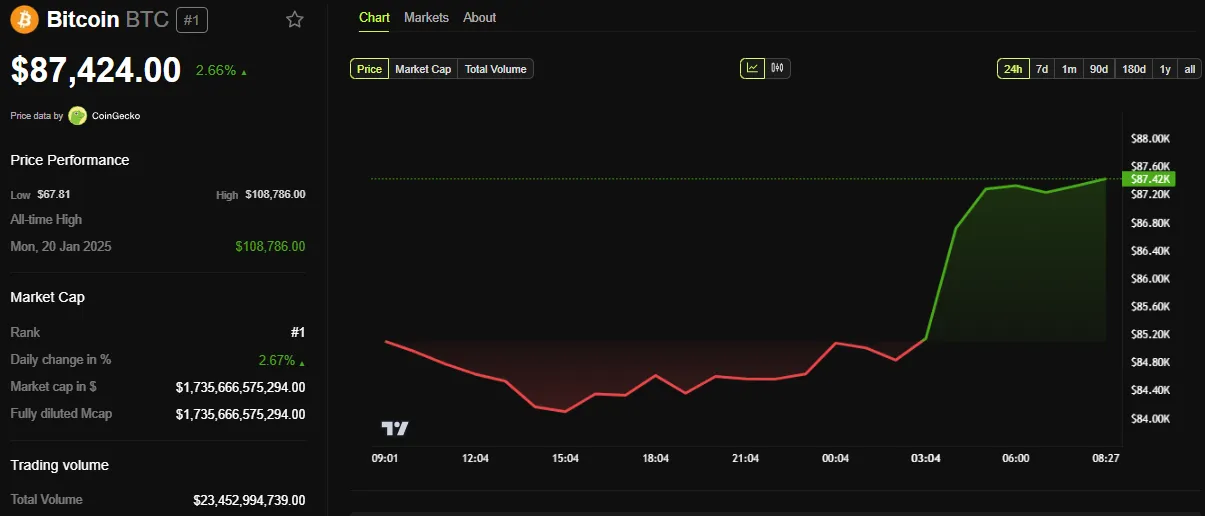
BeInCrypto data shows Bitcoin (BTC) was trading for $87,424 as of this writing. This represents a modest 2.66% gain in the last 24 hours.
Disclaimer
In adherence to the Trust Project guidelines, BeInCrypto is committed to unbiased, transparent reporting. This news article aims to provide accurate, timely information. However, readers are advised to verify facts independently and consult with a professional before making any decisions based on this content. Please note that our Terms and Conditions, Privacy Policy, and Disclaimers have been updated.
Bitcoin
Here Are The Bitcoin Levels To Watch For The Short Term


Bitcoin has produced a range-bound movement recently, with prices oscillating between $83,000 and 86,000. Interestingly, popular crypto analyst Burak Kesmeci has identified the important price levels for any short-term action.
Support At 82,800, Resistance At 92,000 – But Where Is Bitcoin Headed?
In a new post on X, Kesmeci shared an interesting on-chain analysis of the Bitcoin market. Using the short-term investor cost basis, the analyst identified two key price levels that could prove critical to Bitcoin’s next major move.
Firstly, Burak Kesmeci focuses on the average cost prices of new traders over the past 1-4 weeks, which are likely the most reactive to price changes. The realized price for these traders currently stands at $82,800, forming a near-term support that indicates many recent buyers are still in profit and may defend this level as a psychological floor.
Meanwhile, Kesmeci also highlights the $92,000 price level, which marks the average cost basis for BTC holders for 1-3 months. This price point has emerged as an important resistance zone, as investors are likely to exit the market once they break even. Furthermore, the $92,000 price level is also marked by a confluence with various technical indicators.
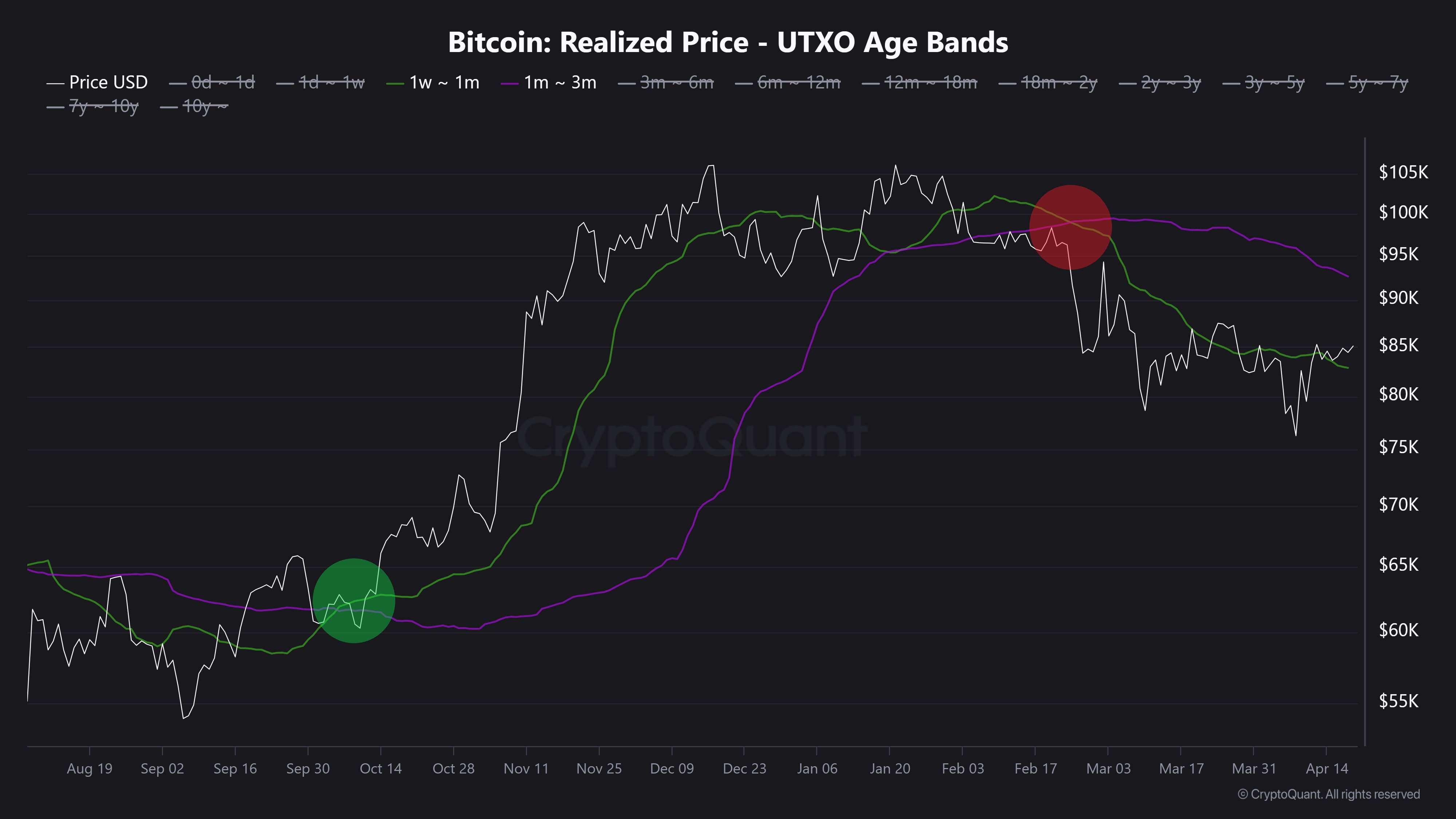
The interplay between these two levels is significant. Historically, short-term bullish trends in BTC tend to begin when the cost basis of more recent investors, 1–4 weeks, crosses above that of the 1–3 BTC holders. This shift signals increased confidence and willingness to buy at higher levels, which often fuels broader rallies.
However, that dynamic remains to play out in the current market. As of now, Bitcoin is trading around 85,000, positioning it above its support at the 1–4 week average of $82,800 but still below the 1–3 month resistance of $92,000. Furthermore, both cost basis levels have been declining over the past two months, reflecting hesitation or a lack of aggressive buying from new entrants.
Notably, Kesmeci states that BTC must surge above $92,000 to confirm a strong bullish momentum for a price reversal.
Bitcoin ETFs Offload 1,725 BTC
In other news, Ali Martinez reports that the Bitcoin ETFs have suffered withdrawals of 1,725 Bitcoin, valued at $146.92 million, over the past week. This development illustrates a high level of negative sentiment among institutional investors, adding to market uncertainty around the BTC market.
Meanwhile, Bitcoin trades at $85,249 following a price change of 0.89% in the past day. The premier cryptocurrency also reflects a 0.58% loss on the weekly chart and a 1.06% gain on a monthly chart.
Feature image from Adobe Stock, chart from Tradingview

Editorial Process for bitcoinist is centered on delivering thoroughly researched, accurate, and unbiased content. We uphold strict sourcing standards, and each page undergoes diligent review by our team of top technology experts and seasoned editors. This process ensures the integrity, relevance, and value of our content for our readers.
Bitcoin
Bitcoin LTH Selling Pressure Hits Yearly Low — Bull Market Ready For Take Off?


Following an extensive price correction in the past three months, the Bitcoin bull market continues to hang in the balance. Despite a modest price rebound in April, the premier cryptocurrency is yet to display a strong intent to resume its bull rally amidst a lack of positive market factors. However, crypto analyst Axel Adler Jr. has highlighted a promising development that could signal major upside potential for Bitcoin.
Bitcoin Long-Term Holders Looking To Halt Selling Pressure
In a recent post on X, Adler Jr. shared an important update in Bitcoin long-term holders (LTH) activity, which could prove significantly positive for the broader BTC market.
Using on-chain data from CryptoQuant, the renowned analyst reports that selling pressure by long-term holders, i.e. amount of LTH holdings on exchanges, has now hit its lowest point at 1.1% over the past year. This development indicates that Bitcoin LTH are now opting to hold on to their assets rather than take profits.
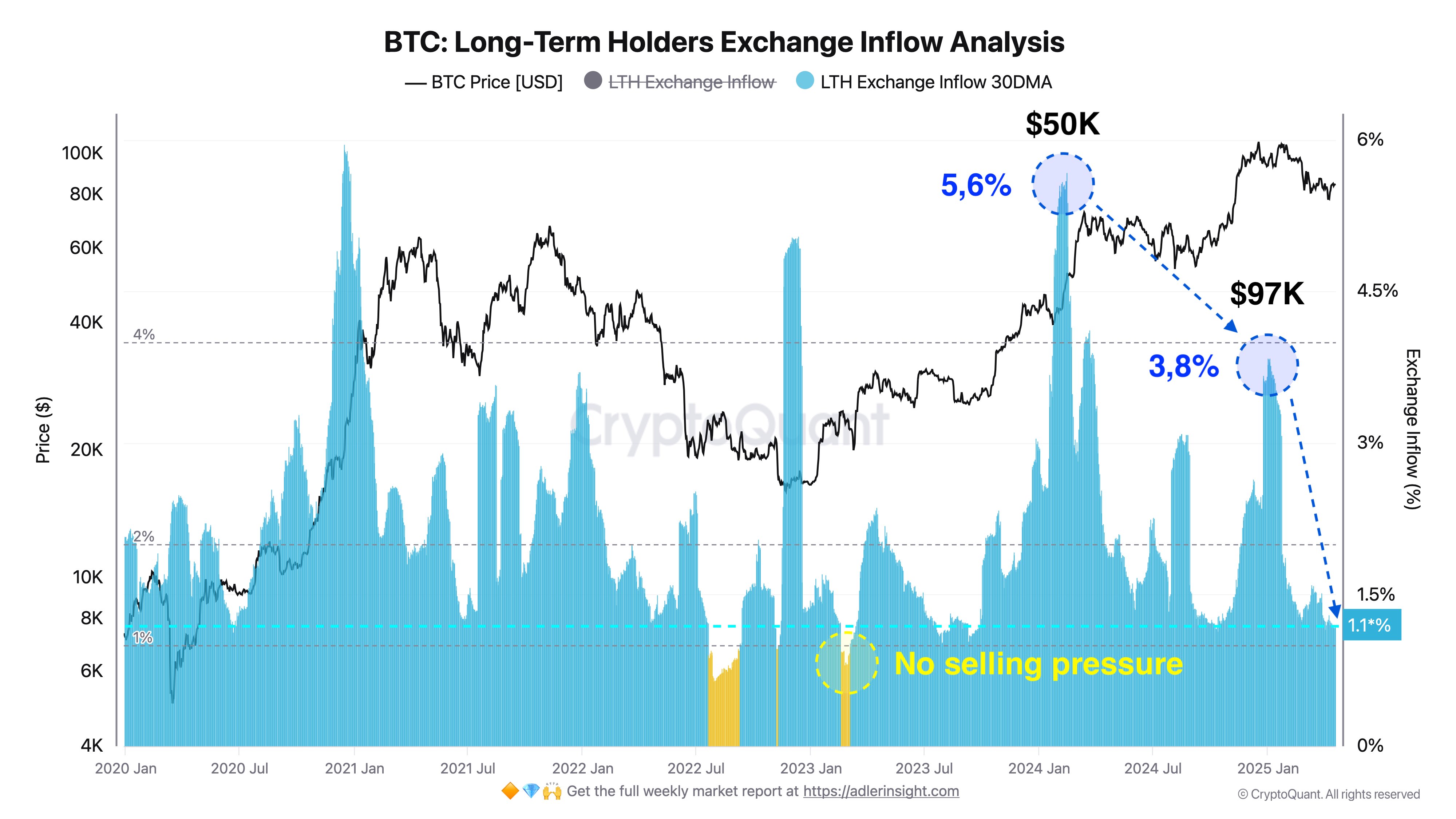
Adler explains that a further decline in these LTH exchange holdings to 1.0% would signal the total absence of selling pressure. Notably, this development could encourage new market entry and sustained accumulation, creating a strong bullish momentum in the BTC market.
Importantly, Alder highlights that the majority of the Bitcoin LTH entered the market at an average price of $25,000, Since then, CryptoQuant has recorded the highest LTH selling pressure of 5.6% at $50,000 in early 2024 and 3.8% at $97,000 in early 2025.
According to Adler, these two instances likely represent the primary profit-taking phases for long-term holders who intended to exit the market. Therefore, a resurgence in selling pressure from this cohort of BTC investors is unlikely in the short-term, which supports a building bullish case as long-term holders currently control 77.5% of Bitcoin in circulation.
BTC Price Overview
At the time of writing, Bitcoin was trading at $85,226 following a 0.36% gain in the past day and a 0.02% loss in the past week. Both metrics only reflect the ongoing market consolidation as BTC continues to struggle to achieve a convincing price breakout beyond $86,000.
Meanwhile, the asset’s performance on the monthly chat now reflects a 1.97% gain, indicating a potential trend reversal as the market correction ceases. Nevertheless, BTC remains in need of a strong market catalyst to ignite any sustainable price rally. With a market cap of $1.67 trillion, Bitcoin is ranked as the largest digital asset, controlling 62.9% of the crypto market.
Featured image from Adobe Stock, chart from Tradingview

Editorial Process for bitcoinist is centered on delivering thoroughly researched, accurate, and unbiased content. We uphold strict sourcing standards, and each page undergoes diligent review by our team of top technology experts and seasoned editors. This process ensures the integrity, relevance, and value of our content for our readers.
-

 Market15 hours ago
Market15 hours ago1 Year After Bitcoin Halving: What’s Different This Time?
-

 Ethereum21 hours ago
Ethereum21 hours agoEthereum Consolidates In Symmetrical Triangle: Expert Predicts 17% Price Move
-

 Market21 hours ago
Market21 hours agoToday’s $1K XRP Bag May Become Tomorrow’s Jackpot, Crypto Founder Says
-

 Market19 hours ago
Market19 hours agoMELANIA Crashes to All-Time Low Amid Insiders Continued Sales
-

 Altcoin24 hours ago
Altcoin24 hours agoWhat’s Up With BTC, XRP, ETH?
-

 Market20 hours ago
Market20 hours agoCharles Schwab Plans Spot Crypto Trading Rollout in 2026
-

 Market16 hours ago
Market16 hours agoVOXEL Climbs 200% After Suspected Bitget Bot Glitch
-

 Ethereum23 hours ago
Ethereum23 hours agoEthereum Accumulators At A Crucial Moment: ETH Realized Price Tests Make-Or-Break Point






